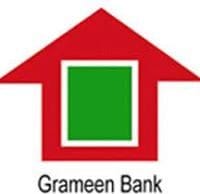Indonesia – Revival of Grameen
New start-ups training with KUM and MKEJ
The new national network of Grameen replications in Indonesia had a large turnout at its second meeting on 14 to 16 May, in Malang, East Java. FREND – Forum Replikator Grameen Indonesia – was formed at a meeting in Solo late in 1998, with five members. Although there are only four active GBRs (Grameen Bank replications) in Indonesia, FREND’s second meeting attracted 40 participants from 16 organisations. These included five new Grameen-type start-ups, several support and training foundations and university groups, as well as NGOs interested in adding credit to existing services.
“It seems that GBRs are poised to take off in Indonesia in the near future,” commented Ibrahim Champion, who heads a new program near Medan, Sumatra. The economic crisis in Indonesia, which has tarnished the banking sector and crippled the lending programs of most rural banks, seems to have led to a revaluation of specially focussed poverty lending, of the Grameen peer group model. The two oldest GBRs — Karya Usaha Mandiri (KUM) and Mitra Karya East Java (MKEJ) — are busy training new start-ups.
Dr Djumilah Zain, who heads MKEJ, the host of the FREND II meeting, reports that they have trained four university groups and NGOs in the past year. These include Basungun Karya, a GBR spearheaded by the local university in the mountains of Solo, and Pokmas-Medan, Ibrahim Champion’s new GBR in Sumatra.
|
Mitra Karya Expands
Mitra Karya East Java is doubling its outreach over the next year. From its current 5,288 clients in four branches, it will expand to 10,000 clients in 6 branches. MKEJ is managed by two university faculty members in Malang, and has 28 field staff. It has forged links with two domestic banks for its on lending funds and has received funds from Rotary California. MKEJ has survived the recent economic crisis in the country. Dr. Djumlah reports that a small percentage of its members– around 3 percent– are dormant, because business conditions are so poor that they dare not borrow. Most of the worst affected members are sellers of processed foods.
MKEJ will recruit four more field staff soon. It does not intend to apply for the Citicorp funds yet. The program is fully stretchedrepaying its current loans to domestic banks and will complete this obligation before considering other sources of lending. |
Indonesia’s oldest GBR, KUM, is already self-supporting and its repayment rates remain very high. It is a program on hold, however. Its status as a project under lnstitut Bankir Indonesia has not allowed it to expand beyond 2,200 members, in its 10th year of operation. Instead, it is sharing its experience to launch new programs in West Java, and train staff of GBRs elsewhere. It is conducting three month training courses at its three branches near Bogor, West Java. “We want to share our experience and the training we received before at Amanah Ikhtiar Malaysia, with organisations which want to implement Grameen banking in other parts of Indonesia,” Ghozali, KUM’s Manager said.
|
We Mourn the Death of Andreas Fuglesang Andreas Fuglesang died in Tanzania on September 19th in Mwanza, Tanzania. May his soul rest in eternal peace. He was a great friend of poor people, and worked all his life for the poor people in many third world countries of Asia and Africa. He, co-authored with his wife Dale Chandler, wrote the first thoroughly researched book on Grameen Bank in 1986. This was titled as “Participation As Process : ” What Can We Learn From Grameen Bank, Bangladesh”. In his death we have lost a great human being. We mourn his death. –Editor |
Renewed Interest
A key partner with KUM in this effort is a new foundation in south Jakarta called Yayasan Dhartna Bhakti (YDB) which has been set up to promote GB type credit for microbusinesses; and combine this with health and other training through the weekly center meetings. Working with KUM, two projects have been initiated in the greater Jakarta area, and a third is planned to start this August.
FREND’s next meeting in August will be hosted in Jakarta by Institut Bankir Indonesia, the research wing of the Central Bank. IBI’s renewed interest is itself significant. Top of the list of priorities developed in FREND II were training for new programs, fund raising for GB replication and monitoring of current activities of FREND members.
FREND III will focus on how Grameen replication can be further developed in Indonesia. One hopeful initiative is the US $1 million loan fund agreement between Citicorp and Grameen Trust signed last March. This is intended for microfinance institutions in the countries hit by the economic crisis – of which Indonesia is the worst affected. Several FREND members have applied to GT for these loan funds and are awaiting approvals.
A more disturbing development is the Government’s Social Safety Net Program, which is distributing cheap credit in the rural areas through the village heads. It is reported that most of this credit is going to the non-poor and there are no effective mechanisms for collecting it back. Although this program is not likely to last, it is undermining the credit discipline of NGOs charging unsubsidized interest rates and making their expansion to new clients quite difficult, FREND members report.
by Helen Todd
